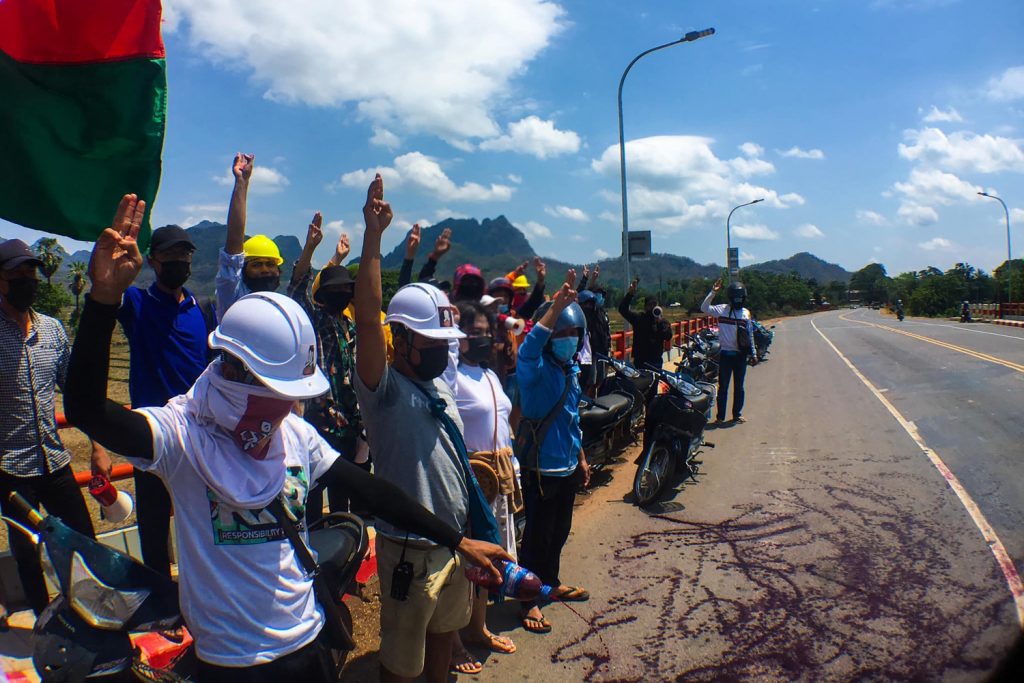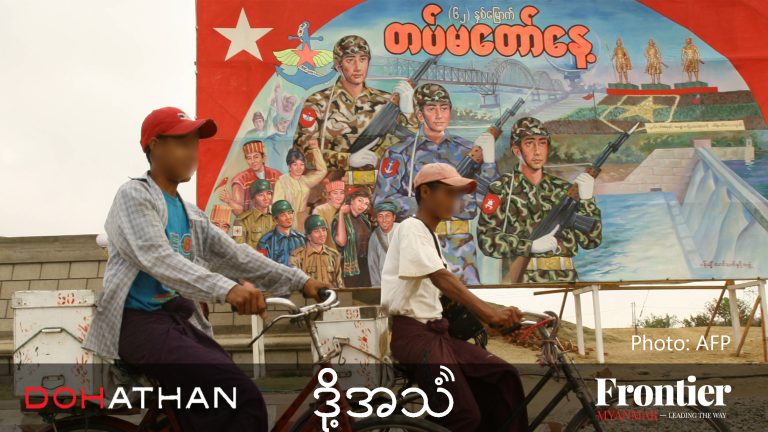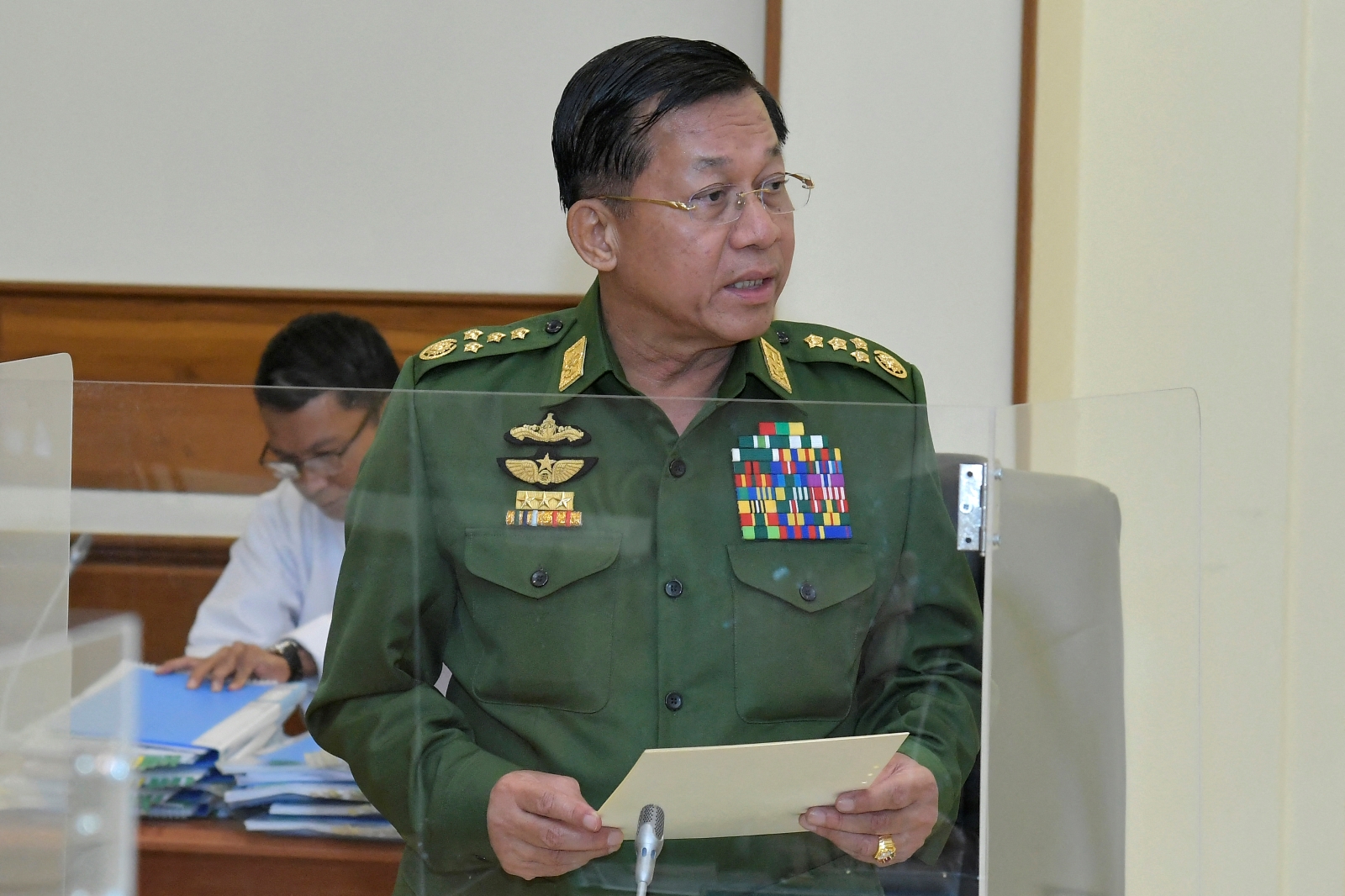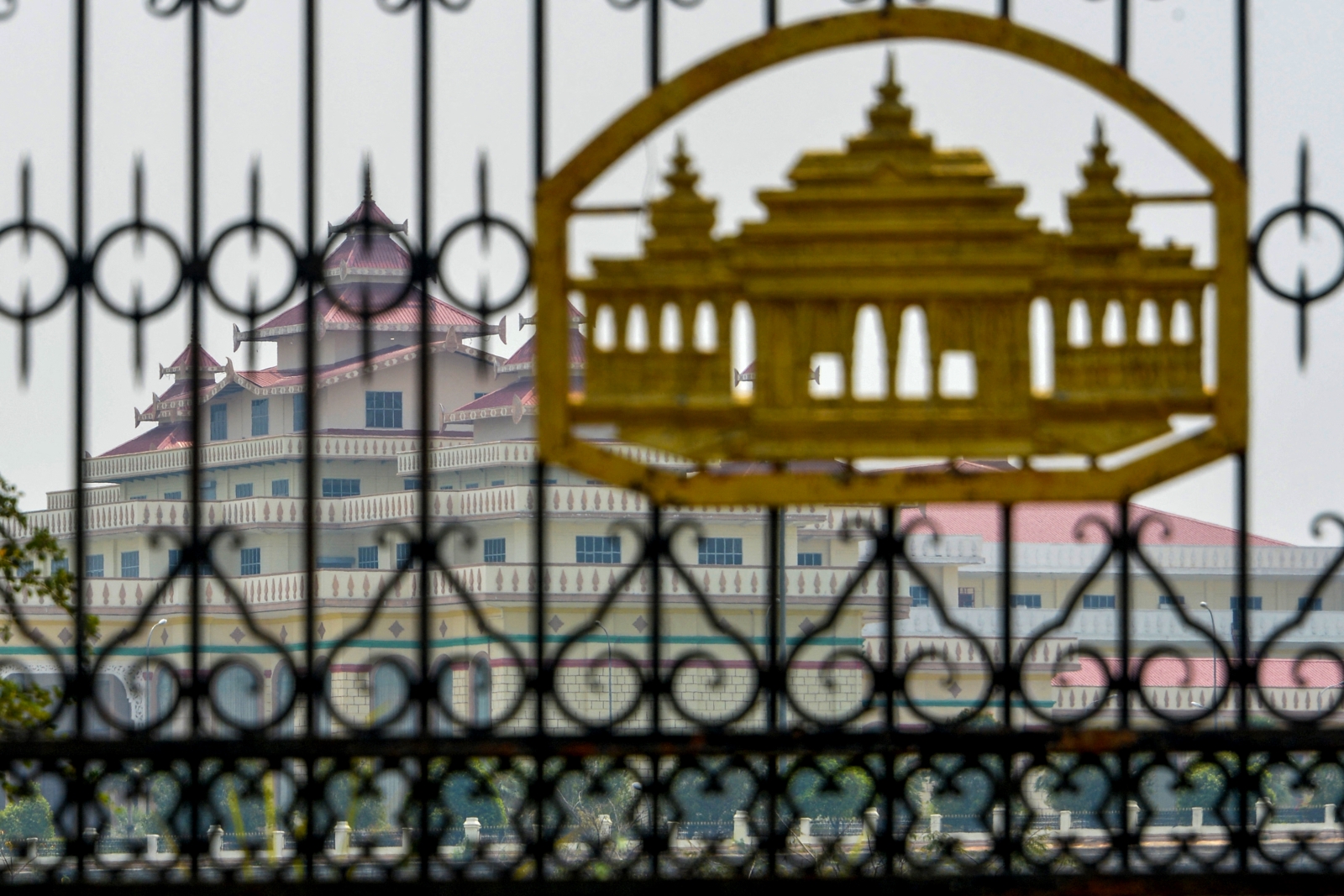Demonstrators daub roadways with red paint to protest against the bloody crackdown on protests, as an online drive to finance the resistance nears $10 million.
By AFP
Activists in multiple Myanmar cities and towns today smeared red paint and handprints on pavements and bus stops in protest at the military’s violence.
The so-called “bleeding dye strike” is the latest creative method thought up by protestors to voice opposition without risking being shot or arrested by demonstrating in person.
One slogan painted on a bus stop in the commercial capital Yangon said the military was being misused to protect junta chief Senior General Min Aung Hlaing, and urged soldiers not to shoot civilians.
Near the Kayin State capital Hpa-an, youths sprayed red paint on the road and gave the three-fingered salute, borrowed from the “Hunger Games” books and films that has become symbolic of the movement.
Today has also seen rallies in the second biggest city Mandalay, as well as in Kachin State in the north.
In the southern city of Dawei, capital of Tanintharyi Region, hundreds of people marched peacefully carrying yellow padauk flowers, normally associated with the Thingyan traditional new year festival that starts next week.
The country has been in turmoil since the military ousted the elected National League for Democracy government on February 1, rocked by daily clashes between protesters and authorities that have left at least 570 people dead.
Ten ethnic armed groups that are signatories to the Nationwide Ceasefire Agreement, and part of a nominal peace process with the Tatmadaw, voiced support for the protest movement at the weekend, stoking fears that the country could slide into broader civil conflict, while the United Nations has warned of a looming “bloodbath”.
Fundraising push
In one part of Yangon, locals organised a food sharing drive to help poor families struggling to make ends meet, encouraging people who could afford it to donate spare ingredients.
Meanwhile an online fundraising push by the NLD-led Committee Representing the Pyidaungsu Hluttaw is nearing $10 million.
The CRPH, which has positioned itself as Myanmar’s legitimate governing authority, says the money will be used to “uproot the military dictatorship” and restore democracy.
More than 2,700 people have been arrested since the coup, according to local monitoring group Assistance Association for Political Prisoners, which says at least 570 people have been confirmed killed, including 47 children.
The authorities have issued arrest warrants for 80 celebrities including singers, models and social media influencers – most of whom are in hiding – accusing them of spreading information that could cause mutiny in the armed forces.
Local media and the BBC’s Burmese service reported that famed satirist and activist Zarganar, jailed four times under previous military regimes, had been arrested.
‘Inappropriate interference’
The coup and crackdown have drawn outrage and sanctions from world powers, as well as prompting several international companies to suspend business in Myanmar.
But the pressure has yet to tell on the generals, who have shown little sign of stepping back from their efforts to suppress protests.
And on Tuesday Russia, which has sought to build ties with the junta, joined China in publicly rejecting sanctions against Myanmar.
News agency Interfax quoted a Russian foreign ministry spokesperson as warning “threats and pressure” could push Myanmar closer to “full-blown civil conflict”.
Chinese foreign ministry spokesman Zhao Lijian restated Beijing’s opposition to “inappropriate interference” in Myanmar.
But he said China backed a summit of regional bloc ASEAN to discuss the crisis – mooted by Malaysia and Brunei’s leaders after talks on Monday.
The Myanmar military has defended seizing power, pointing to fraud allegations around last November’s general election, won by the NLD in a landslide.







